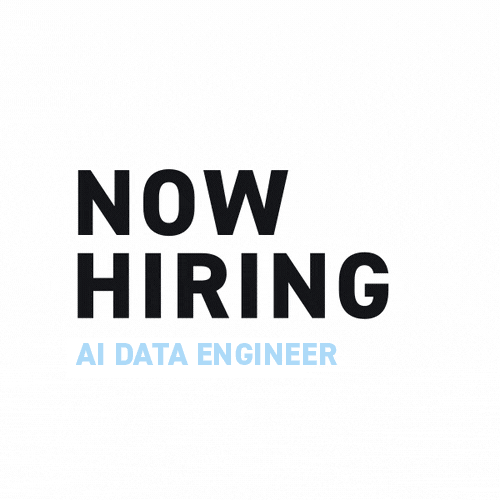AI Data engineers work with AI Product Managers to build new AI projects from the ground up using available data.
Some of the responsibilities of an AI Data Engineer include:
- Building AI models from the ground up and helping stakeholders in the organization (including business users and product managers) understand what outcomes the models will yield.
- Performing statistical analysis and interpreting the results to help the company make better business decisions.
- Creating and managing AI product development and infrastructure.
- Creating data transformation and data ingestion infrastructures.
- Automating the infrastructure used by the data science team.
- Developing machine learning applications as per requirements.
- Running AI and machine learning experiments and tests.
- Training and retraining systems when needed.
- Transforming machine learning models into APIs so other applications can interact with them.
- Coordinating tasks with other members of the AI team.
- Collaborating with the electronics and robotics departments.
SKILLS NEEDED:
AI Data Engineers must be experts in software development, data science, data engineering and programming. They must be able to uncover and pull data from a variety of sources; create, develop and test machine learning models; and build and implement AI applications. Here are some of the skills needed to be competitive in the AI market:
- Extensive knowledge of statistics, calculus or algebra to work with algorithms and an understanding of probability to interact with some of AI’s most common machine learning models, including
- Naive Bayes, Hidden Markov and Gaussian mixture models.
- Skilled in popular programming languages such as Python, C++,
- Java and R to develop and deploy AI models.
- Solid understanding of algorithms and applied mathematics to build, modify and use AI models.
- Good knowledge of natural language processing, which combines computer science, information engineering, linguistics and AI in one system, plus the ability to program the system to process and analyze large data sets.
Non-technical business skills
- Ability to clearly communicate project goals, timelines and expectations with stakeholders, including data scientists, data analysts, research analysts, software engineers, marketing managers and product teams.
- Ability to think critically, creatively and analytically to solve problems in real time, evaluate numbers, trends and data and develop conclusions based on findings, question established business practices and suggest new approaches to the AI process.
- Ability to work in a collaborative and supportive work environment.
- Possess business acumen and industry knowledge.
Education
- Bachelor’s degree in a field related to AI, such as data science, computer science, IT or statistics.
- Master’s degree, or Ph.D (preferred, though not typically required) in such disciplines as data science, mathematics, cognitive science or computer science.
- Enrollment in additional AI-related courses and certification programs is essential to staying up-to-date on the latest trends and technologies.
SOFTWARE PROFICIENCY NEEDED BY AI DATA ENGINEER:
AI Data Engineers must be comfortable with an array of data engineering tools. They especially must be adept with popular programming languages such as Python, C++, Java and R to develop and deploy AI models.
Other AI Job descriptions:
AI ETHICIST, | AI PRODUCT MANAGER (OR AI MACHINE MANAGER),
AI PROMPT ENGINEER (OR AI QUERY WRITER), | AI TRAINER

